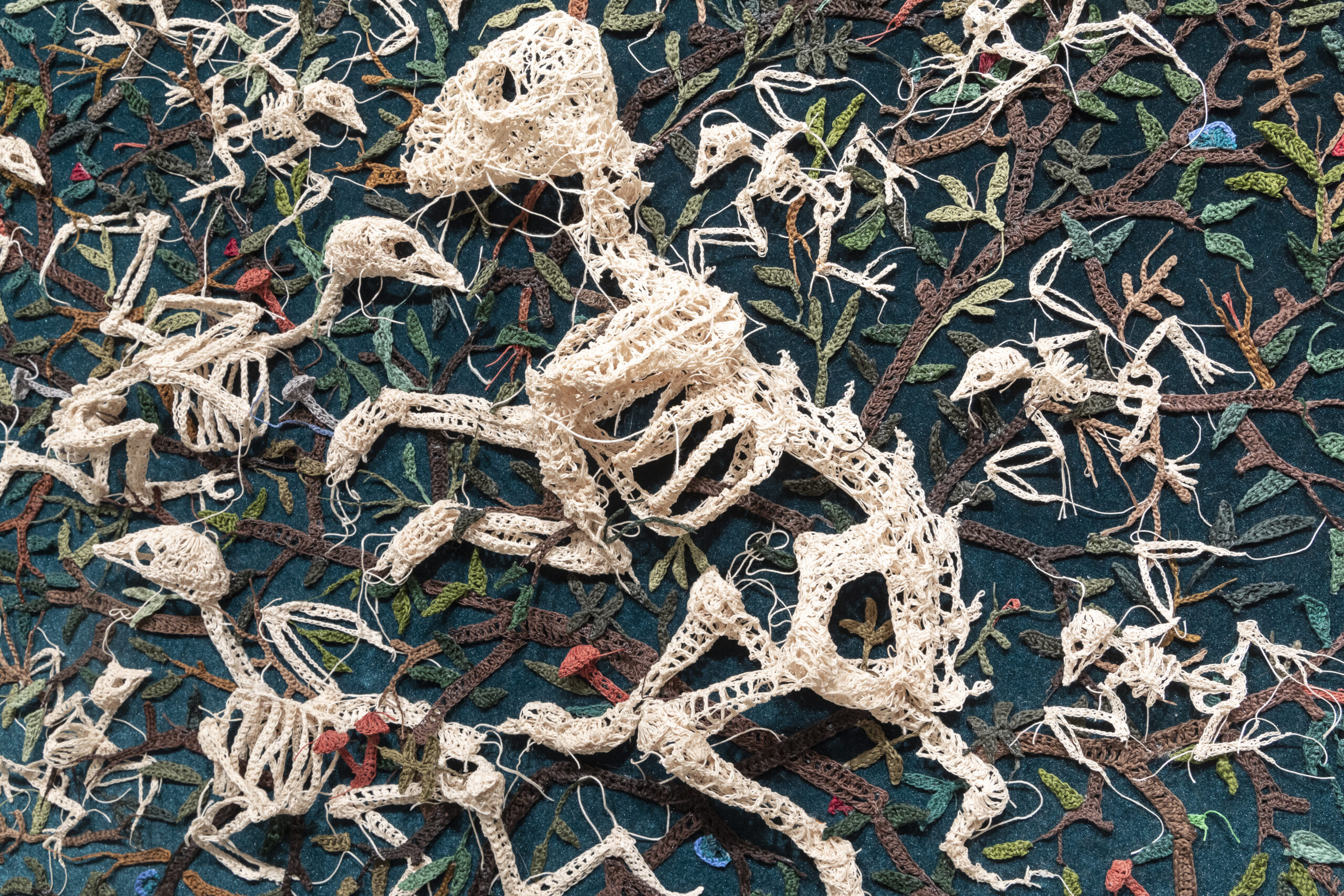- cross-posted to:
- [email protected]
- cross-posted to:
- [email protected]
At its core, an art museum is essentially a narrative of empire. If, as Napoleon quipped, history is a set of lies agreed upon, a museum is their physical manifestation. Aptly, the Met—the grandest, most august museum in a city that likes to think of itself as the center of the world—boasts all the baubles that connote having made it, including a few once owned by Napoleon himself. Cleopatra’s needle, the Temple of Dendur, Greek goodies faded polychrome or ghostly blanched, Persian carpets, Old Masters, Estruscan jewels, Japanese lacquer, South Asian sacred sculpture, Chinese vases, Senegalese masks, Polynesian canoes. The good, old stuff! All in one place, the best of it all from every corner of the globe.
But the best according to whom? The Met is a museum of objects rich people, like Shelby White, value; it is a narrative of wealth and what signals it. Accordingly, the place has no shame at trafficking in stolen goods, and enlisting lawyers to stonewall the looted parties (e.g., Greece) with reams of contracts and receipts to establish provenance. It’s a Red State mentality with Blue State wall text. The institution has the dirty opioid money and the dirty oil money. Its worldview is unabashedly human-centric, each wing featuring a different culture trying to figure out what the hell it all means—most often, a whole lot of fucking, being born, and dying. Religious fanaticism is rife. Social hierarchy abounds. Women are mostly subjugated and objectified. The Hall of Arms and Armor would make any 2nd Amendment enthusiast blush with delight. Inveterate elitists, the Met celebrates the winners. It doesn’t have time for the downtrodden or the poor because they didn’t leave nice enough shit behind. Or any shit at all.
“If we narrowly define ‘museum’ to be something inherently unethical, we can argue that there is no such thing as an ethical museum!”
The author has a degree from Princeton. By this logic, her degree is unethical and her viewpoints are the unethical rants of those rich benefactors.
There’s a reason sweeping generalizations don’t work. Discussing the ethics of provenance is a great topic. Discussing what should be in museums is a great topic. Saying every museum dedicated to educating future generations about the dangers of genocide is unethical just seems like a stretch to me.
I don’t really understand the Princeton argument. Even if the degree of the author is unethical, how is that relevant to criticizing something? We are allowed to criticize and scrutinize things even if we are ourselves part of it, or come from it. I’m not sure if you are implying the biblical idea of “he that is without sin among you, let him first cast a stone” here, but if so, then nobody would be able to criticize anything.
I think this is a great question! I’m not going to the extreme you bring up (which I think is a valid read of my comment). Instead, I’m applying the argument the author makes to the author. If museums are unethical because they are the product of rich folks with collections to show off, the same argument should easily apply to Ivy League universities which have long been spoken of in the same breath as the museums the author calls out. By extension, someone educated at an unethical university would be spouting unethical talking points shaped by the rich benefactors, similar to the author’s point that museums only exist to be the mouthpieces of rich people. This, in turn, establishes that we cannot trust the author. I was making an argument by contradiction in which I accept the author’s point and use it to show it leads us to weird places.
This point would be a little weak if, say, the author had included the Navajo Nation Museum or the Holocaust Memorial Museum. I made that comparison because I do not believe the author’s sweeping generalization, that all museums are unethical, is the right conversation to have. I do believe there are great conversations to have about the things we put in museums and how the provenance of those objects is tracked and respected.
I have visited many museums not too long ago, to name a few:
- The Kyoto Railway Museum (京都鉄道博物館)
- The Verkehrshaus der Schweiz
- The National Railway Museum York
- The Deutsches Museum Verkehrszentrum
- Train World
- Spoorwegmuseum
- Danmarks Jernbanemuseum
- Museo del Ferrocarril de Madrid
I’m sure as the author says, these are all dirty opioid/oil money-funded, filled with religious fanaticism, stolen goods, and feminine objectification.
There’s a children museum down town where I live. Probably uses child labor.
Seriously though, they have some great stuff to expose kids to science and art.
The local native American History museum near me that’s on ancestral land and sponsored by the tribal council probably stole the artifacts smh
You joke but just because a group is a local native american organization (such as the local tribal council you mentioned) doesn’t mean they behave ethically or that they have the rights/ownership of everything they’re displaying. It’s more likely than, say, a british museum lol. But they should still be scrutinized!
Aight.
Most “children’s museums” i’ve seen aren’t really museums but rather “interactive learning” spaces of sorts. They’re borderline playgrounds, they don’t curate historical objects that one can’t touch generally. It’s kind of a misnomer tbh
They did have some dino bones, and some artifacts from the past hundred years, like here’s how people washed clothes in the 1800’s, with the real ones behind glass and the recreations you could play with….
But I get your point. My point, and I think the point of others in this thread a is that this is a very complex issue and claiming that all museums are unethical is a gross over simplification and wrong.
There are clear ethical issues with some museums, especially how they acquired their pieces and how some wealthy abuse them to save on taxes. (and probably a bunch of other stuff too.) However to start with ‘all museums are unethical’ is a bad starting place as it’s going to be dismissed out of hand because it’s preposterous. Instead of having a conversation about the unethical things some museums do, we get easy counter examples, jokes, and yet another thing conservatives will point to when they claim liberals are crazy.
The childrens museum by me has loads of things you can’t touch, the exhibits are just more generally interactive. There’s a real human skeleton where you press buttons to light up various bones, and a polar bear taxidermy with a thing that shows you how the fur keeps them warm with a cold surface and a range of materials on it including a square of polar bear fur so you can see the different warmths.
All this might be true for large, privately funded museums in the US, but generalizing for all kinds of museums with this very limited set of examples shows how US-centric the author is. Feels like r/ShitAmericansSay.
I’m really really glad that there are many critical (and unfortunately severely underpaid) people here in Germany that to this day work on showing and explaining the Holocaust. Are there many museums in Germany that still have stolen goods from all over the world and that refuse to give them back? Yeah, sure! But that does not make any thinkable museum unethical!
The title 100% seems editorialized to shreds. The idea that you can generalize all museums from such a limited set of examples is just absurd to anybody.
Huh? There are colonialist museums all over especially Europe. The UK is notorious for this in particular, but also not unique. There are numerous museums in the us as well which do not fit into this generalization, so claiming that the author is simply speaking in a biased way due to their us-centrism doesn’t actually make any sense as a rebuttal. I’d wager one could levy an identical tone of complaint of the American author wrote about Europe, except by just claiming they aren’t speaking to the culture they are party to.
Why are the pyramids in Giza?
spoiler
They couldn’t fit in a British museum.
Hm, I see your point. The actual problem of the article is rather the generalization in the title in combination with the very limited scope of the article. No US centrism necessary for criticizing it!
I don’t think the author genuinely believes literally all museums are like this, but I do agree that the harsh tone and finality of their claims might be a bit strong. When applied on target though, the article isn’t wrong, I’d say it makes great points about say the met ‘justice washing’ so to speak.
deleted by creator
What about a community art museum?
I went to a museum where locals had made recreations of da Vinci equipment. Pretty cool, pretty ethical
Given the US war on, erm, libraries of all things, are they coming after museums as the next culture-warring locus? Like people who couldn’t care less about ethics trying to close museums lest people learn something about people somewhere else.
ummm, ummm 👉👈, what about Ramen museum
The ramen museum is fun, highly recommend if in the area. As for its ethics, I think the ethics of the work culture in Japan can be talked about, but I don’t know how the shops in that particular museum operate.
While I find this piece as silly as everyone else does, this was actually one of the reasons I specifically DIDN’T go to the Louvre when I went to Paris this summer. When I’m in France, I want to see cultural artifacts unique to France, not bits and baubles that have been pilfered from all over the world.
I think my favorite museum experience was Musée d’Orsay, which was… mostly French (or other Western European) artwork. Why would I go to France and see something not French? It would be like going to Germany and having Mexican food (which I did when I was younger, would NOT recommend).
…Ah yes, the most grift-y place in the world, the Boston Museum of Science.
I thought this was a great article, and relevant for for example myself as a museum employee. The questions that the article proposes are relevant for us and something that we work and struggle with when we display the art pieces that we have in our collection and when we decide to host a temporary exibition or purchase new art. The institutional legacy (yes we are a musuem in Europe that has a great part of or original collection donated by rich upper class collectors) of the museum and the narratives that were presented in the past and that we present in our exibitions should be scrutinized and questioned, it is part of our job as an institution.
“At its core, an art museum is essentially a narrative of empire.”
The museum that I work with has a large collection from our country’s period of national romanticism, the ideas of nation and the narrative that this collection potentially displays are not only something worth thinking about but something that the museum is very aware of. Specially since we live in a contemporary society with increasing nationalist tendencies that at times uses culture/art as a tool for their political and oppresive agenda.
“No matter how intricate or well researched a palimpsest—at any cultural institution—it will never solve the problem of perspective. We can never escape ourselves or the times in which we live. Maybe this is the best we ever do—and maybe that’s fine. Maybe seeing museums as deeply flawed but instructive monuments to that attempt at understanding, rather than as definitive catalogs, is the best way to allow them to teach us about ourselves. Sometimes, we need the reminder not to believe something just because it’s written on the wall.”
I think this last paragraph is very interesting and something to keep in mind, specially as a museum employee.
deleted by creator









